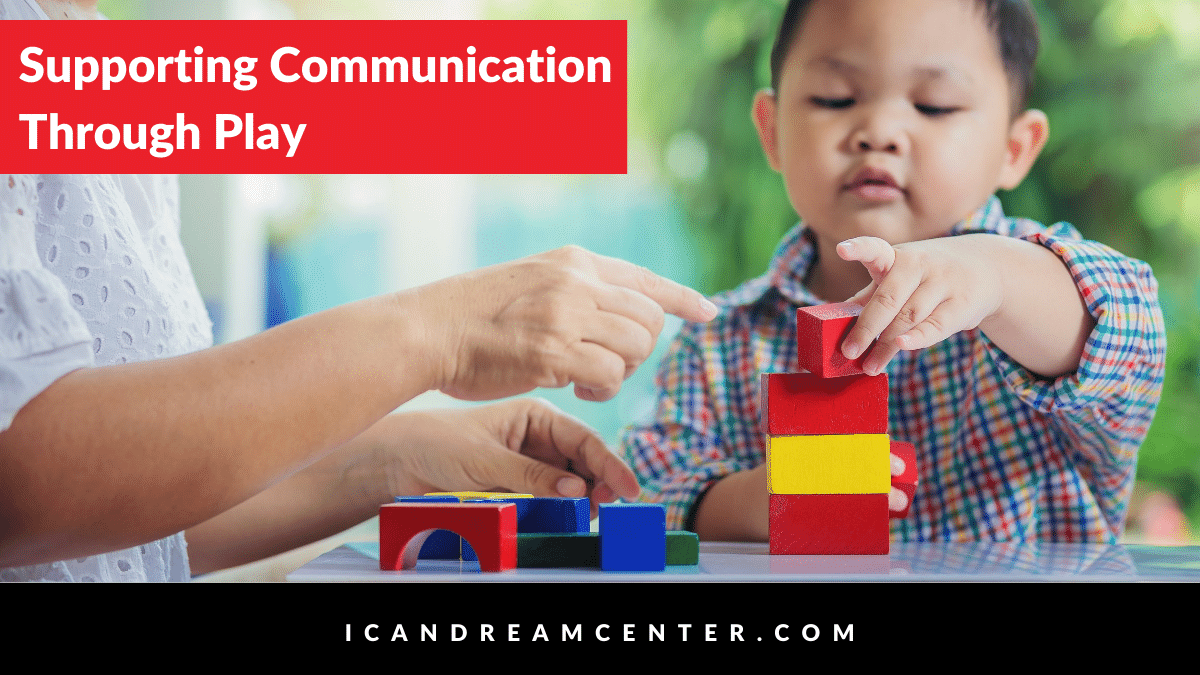
Supporting Communication Through Play
Play is an important part of development for all children. It allows them to explore the world around them, communicate with others, share, problem-solve, and develop many other foundational skills. Language is one of the skills children learn during play. There are strategies we can use to support language growth during play and facilitate learning opportunities. These learning opportunities do not require expensive materials or training and may even be part of a child’s play routine already. They can be implemented across activities, settings (e.g., classroom, home, playground), and individuals (e.g., caregivers, teachers, siblings).
Some strategies to support communication include:
- Responding to each of the child’s communication attempts both verbal and nonverbal
- Child: *points*
- Parent: “ooo bear!” *gives teddy bear*
- Modeling new grammar and vocabulary by expanding on the child’s speech:
- Child: “car”
- Parent/caregiver/support staff: “Ooo, yes! Big car!”
- Singing songs
- Reading books
- Asking questions
- Pointing to words as they are read
- Talking about book topics
- Practicing turn-taking
- Stating whose turn it is when playing with toys (e.g., “Mommy’s turn!” “Now it’s your turn!”)
- Playing organized games such as board games
- Gesturing or making a facial expression to facilitate the child’s response during conversation
- Self-Talk and parallel talk
- Talks about what you are doing and/or what the child is doing during play (e.g., “I’m making a yummy pizza! Now I’m going to cut it! Ooo so yummy!”)
Incorporating these strategies into play activities can support a child’s understanding and use of new language. One study found that reading books aloud and storytelling led to children’s increased interest in signs, symbols, pictures and letters, and a widened understanding of vocabulary, language, and language concepts (Brodin & Renblad, 2020). These strategies have also been found to support the play skills of children with a diagnosed language delay (Sualy et al., 2011). While these strategies can be used to support children with language difficulties, all children can benefit from these learning opportunities.
References
Brodin, J., & Renblad, K. (2020). Improvement of preschool children’s speech and language skills. Early Child Development and Care, 190(14), 2205-2213.
Sualy, A., Yount, S., Kelly-Vance, L., & Ryalls, B. (2011). Using a play intervention to improve the play skills of children with a language delay. International Journal of Psychology: A Biopsychosocial Approach/Tarptautinis Psichologijos Zurnalas: Biopsichosocialinis Poziuris, (9).
